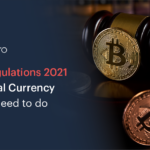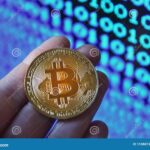Top Cryptocurrencies to Watch in 2025 and Beyond sets the stage for an insightful exploration into the dynamic world of digital currencies. As we venture into the future, understanding which cryptocurrencies are set to make waves is crucial for investors and enthusiasts alike. The landscape of cryptocurrency is ever-evolving, with new technologies and trends shaping what lies ahead. From established players to emerging contenders, this discussion will highlight key factors that make certain cryptocurrencies worthy of attention.
We’ll delve into the advancements in blockchain technology, market trends, and the influences driving the crypto economy. This overview aims to equip you with the knowledge needed to navigate the exciting and sometimes unpredictable world of cryptocurrencies.
In today’s fast-paced world, the importance of effective communication cannot be overstated. It serves as the cornerstone of relationships, whether personal or professional. As we navigate through various interactions, understanding the nuances of communication becomes essential. This article delves into the different aspects of communication, highlighting its significance, the various types, and tips for improvement.Firstly, let’s define communication. At its core, communication is the act of transferring information from one person to another.
This can be done through various mediums such as spoken words, written texts, non-verbal cues, and even digital platforms. The effectiveness of communication rests on not just the message conveyed, but also on how it is delivered and received by the audience.Effective communication is vital in numerous spheres of life. In the workplace, clear communication can lead to better teamwork and collaboration, ultimately resulting in improved productivity.
When team members can express their ideas and concerns openly, it fosters a culture of trust and respect. In contrast, poor communication can lead to misunderstandings, decreased morale, and conflicts, which can hinder progress and innovation.In our personal lives, effective communication is equally important. It helps in building strong relationships by enabling individuals to share their thoughts and emotions. Whether it’s with family, friends, or romantic partners, clear communication can prevent conflicts and strengthen bonds.
In contrast, miscommunication can lead to hurt feelings and estrangement.Understanding the different types of communication is crucial in honing effective skills. Primarily, we can categorize communication into verbal and non-verbal. Verbal communication involves the use of words, either spoken or written. This includes conversations, speeches, emails, and text messages. Non-verbal communication, on the other hand, encompasses body language, facial expressions, gestures, and tone of voice.
Studies show that a significant portion of our communication is non-verbal, often conveying more than words themselves. Another important distinction is between formal and informal communication. Formal communication typically takes place in structured settings, such as meetings or official correspondences. It often adheres to standard protocols and is usually more polished. Informal communication, in contrast, is casual and spontaneous, often occurring among friends or in relaxed settings.
Both forms have their place and can be effective in different contexts.With the rise of technology, we also see the emergence of digital communication. Emails, social media, and instant messaging have transformed how we interact. While these platforms offer convenience and immediacy, they also come with challenges. The lack of non-verbal cues in digital communication can lead to misunderstandings. Therefore, it is important to be mindful of language and tone when communicating through these mediums.Now, let’s explore some tips for improving communication skills.

Firstly, active listening is a fundamental aspect of effective communication. It involves fully concentrating on the speaker, understanding their message, and responding thoughtfully. This not only shows respect but also encourages an open dialogue. Practicing active listening can help individuals become more empathetic and understanding.Another important tip is to be clear and concise. When delivering a message, it’s essential to articulate thoughts clearly to avoid ambiguity.
Using simple language and breaking down complex ideas can help ensure that the audience grasps the intended message. Additionally, being mindful of the audience’s background and perspective can tailor the message for better understanding.Non-verbal communication should not be overlooked. Being aware of one’s body language, eye contact, and tone can significantly impact how a message is received. Positive body language, such as maintaining eye contact and having an open posture, can convey confidence and openness.
On the flip side, negative body language can create barriers and misinterpretations.Moreover, feedback plays a crucial role in communication. Encouraging a two-way dialogue allows individuals to express their thoughts and feelings. Constructive feedback can foster a culture of continuous improvement, where individuals feel valued and heard. It’s essential to approach feedback with a mindset of growth rather than criticism.In a diverse world, understanding cultural differences in communication styles is increasingly important.
Different cultures may have varied ways of expressing ideas and emotions. Being culturally aware can enhance interactions and prevent potential misunderstandings. Taking the time to learn about different backgrounds can enrich personal and professional relationships.Finally, practice makes perfect. Like any skill, effective communication improves with practice. Engaging in conversations, participating in public speaking, or even writing regularly can help individuals refine their skills.
Joining groups or workshops focused on communication can also provide valuable opportunities for growth.In conclusion, effective communication is an indispensable skill that impacts all aspects of life. By understanding its various forms, actively listening, being clear and concise, and embracing feedback, individuals can enhance their communication abilities. As we continue to navigate through the complexities of interpersonal interactions, investing in communication skills is a worthwhile endeavor that leads to stronger relationships and greater success in our endeavors.
Whether in the workplace or at home, the ability to convey ideas and connect with others is a powerful tool that can shape our experiences and open doors to new opportunities.



